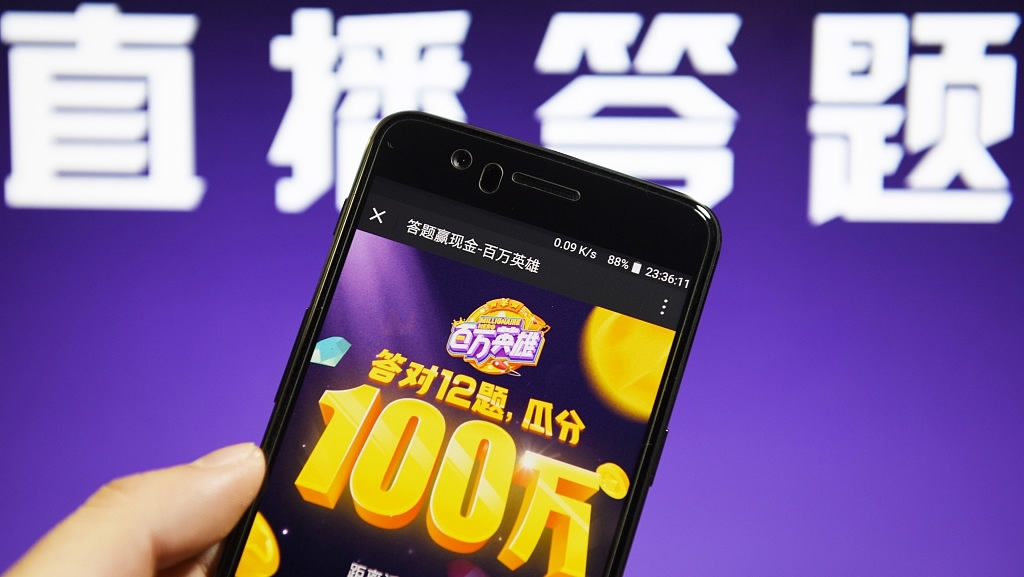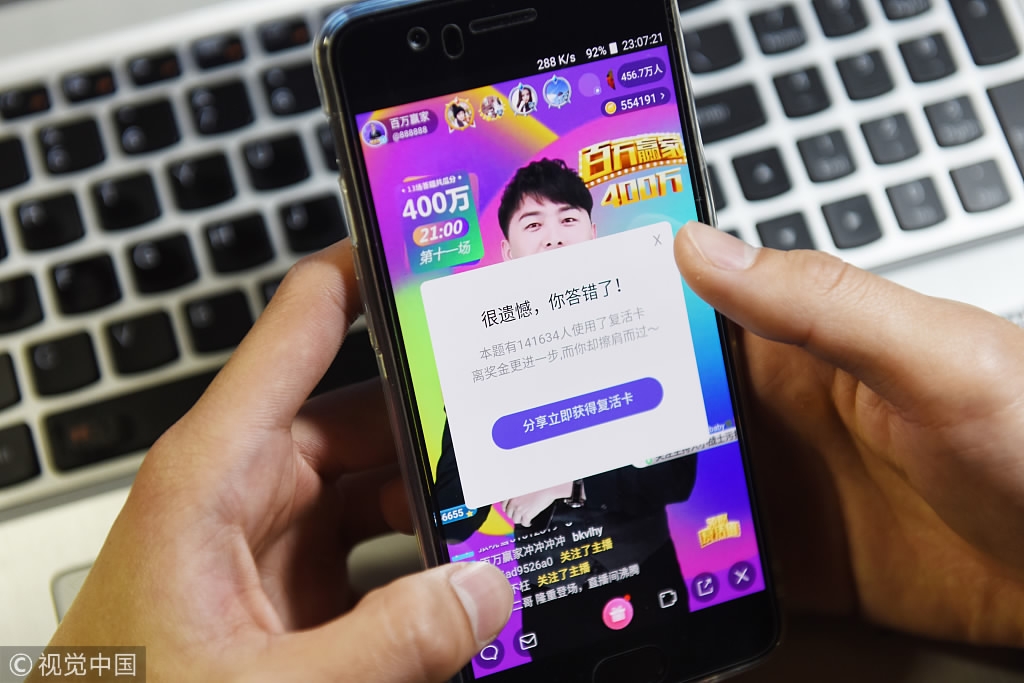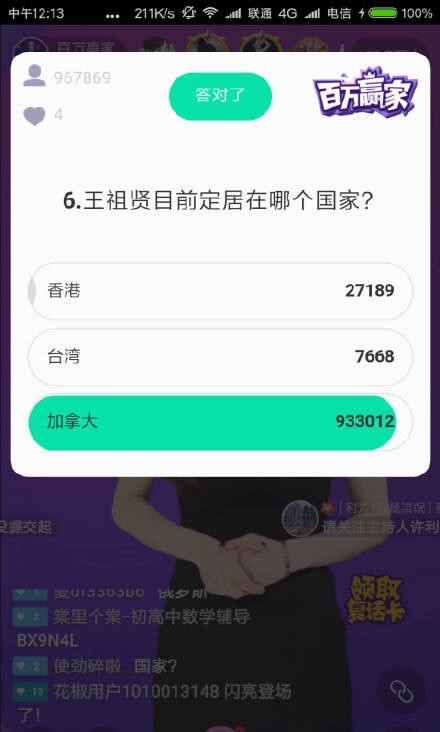
China
23:03, 14-Jan-2018
Why quiz contests on live streaming apps might not hit the jackpot
CGTN

Looking to cash in on your general knowledge? There's a new Chinese live-streaming app for that. But the self-confidence of the most cultivated of brainiacs could be put to the test as questions abound over the nature of topics of the trivia quizzes.
If you've recently seen people gathering around an iPhone handset, scratching their heads and debating answers, they're probably on Watermelon, a new viral live streaming app that rewards your knowledge with real money. It is the latest in a series of apps that are gaining momentum among Chinese smartphone users all the while drawing heat over their shallow, and at times promotional, content.
The highly interactive app fuses the format of traditional game shows with live streaming technology, and features a host asking the same questions to a cohort of players across the country at the same time.
The "show" takes place according to pre-announced timetables, and the rules are simple. Twelve questions stand between the player and the grand prize, but the difficulty of the questions increases as one gets closer to the final round. Players need to tap the screen within 10 seconds to lock in their answers.
Those who make it through all the questions, win. But they will have to split the prize, which ranges anywhere between 100,000 yuan (about 15,500 US dollars) to over a million yuan, with other lucky players who made it to the end.
High monetary incentives have lured in a large number of users to download the apps and put their thinking caps on.
On January 3, more than 280,000 people simultaneously competed on "Reach a Peak", a new app launched just for iPhones less than three weeks earlier. The app quickly moved up the ranks, becoming the sixth most downloaded app in its category on the App Store in China.
Live streaming heavyweights like Huajiao, Inke and Douyu all followed suit investing sizable sums with the expectation that a high volume of users and revenue from ads will eventually bring in profit.

But why are these quizzes popular? Everyone is in it to win it naturally, but while some are looking for the big prize money, others are searching for bragging rights. Star power also has a hand in attracting users.
A user on China's Twitter-like Weibo, who goes by the name @Tianbufan said the game is worthwhile without the money bonus as it helps with gaining knowledge.
However, not everyone is so board. Some have denounced attempts to link these apps to the concept of knowledge, calling them "lucrative businesses" just for people who like to waste their time, emphasizing that the content of the tests is far from being stimulating.
In one round on “Cheese Superman” app, operated by Inke, Wang Han, a famous host from south China’s Hunan Province, asked a question about the meaning of a certain word in Hunanese dialect, which was frowned upon by many users who are not familiar with the local tongue.
In another round sponsored by Meituan, an online food delivery company, on Huajiao app, which attracted four million users in just 40 minutes, four questions out of a total of 12 questions centered on the company's delivery business.
"The questions can be so meaningless and inconsequential," Weibo user @Tongyao said.
Another user @Happydidi worried that the promotional dimension of the content will kill people's passion for the game.

Shi Xingqing, a professor at the Journalism and Communication School of the China University of Political Science and Law, maintained that live streaming quiz applications are just a new form of the traditional quiz programs on TV.
Economist Song Qinghui expressed belief that users will quickly lose interest if the questions are simply advertising advertisers.
"If the sponsors didn't get the reward, they will cut off the investment and this 'burning money' mode would not be sustainable," Song told the Legal Evening News. He suggested live streaming apps focus more on benefiting from the large user base with their diverse and entertaining games.
Financial commentator Yan Yuejin sees a bright future for live streaming quiz contests, speaking highly of their innovative and interactive playing method. "If the ads are fun enough, they will target the young generation," Yan said, arguing that knowledgeable quizzes are better than the stereotyped shows.

On Sunday night, Beijing Internet authorities ordered Huajiao app to make corrections after they reportedly listed Hong Kong Special Administrative Region (SAR) and Taiwan as separate countries in a quiz round held on Saturday noon. In an open letter, Huajiao app promised to better review the content of its quizzes.

SITEMAP
Copyright © 2018 CGTN. Beijing ICP prepared NO.16065310-3
Copyright © 2018 CGTN. Beijing ICP prepared NO.16065310-3